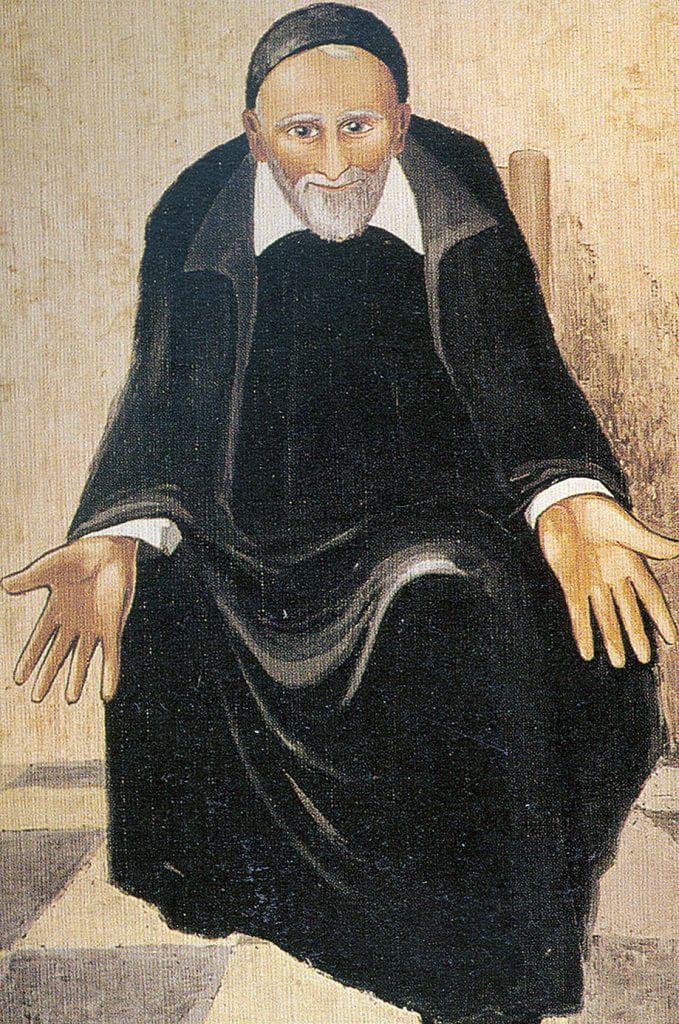This week we are celebrating the best of our spiritual heritage: the life of Saint Vincent de Paul.
I discovered St. Vincent when I joined the Congregation of the Mission at 18 years of age on February 5, 1984. I was looking for community and a communal experience. I rapidly felt in love with him, his life, his commitment, his humanism, and his endless creativity. Over the past 38 years I have come to understand that Vincent is an important part of an infinite constellation of guardians, prophets, and witnesses. He is part of a constant, sacred memory of the God of a thousand names and expressions in a vast array of religions, cultures, and spiritualities.
Vincent de Paul is a very human prophet and teacher capable of provoking a yearning within us for God, the God of the poor and the most abandoned. This memory and our yearning take concrete form as something bigger than our own egos. We recognize it as something essential for a peaceful and sustainable coexistence in this, our common home. Vincent’s life and his work were inspired by the memory of God, a memory and yearning for compassion, mercy, solidarity, transformation, and love and justice. The memory of God in Vincent’s life is a strength that forces us to go to the margins, to welcome the stranger, to console the afflicted, to free the oppressed, and to “leave no one behind.”[1]
Today Vincent de Paul is a living memory, and our yearning must therefore include working for racial equity and to overcome structural racism and systems of white supremacy. For us, we must recognize the historical reality of the unfortunate connections some members of the Congregation of the Mission had to slavery in the nineteenth century. And we must articulate the connections that enslavement and the legacy of institutional racism have to our present. The yearning of God must be a yearning for truth and transformation.
I am certain that Vincent himself experienced a memory and yearning for God early in life. “He left his home diocese, Dax, and moved to the capital around 1607, where he began to make contacts among the ecclesiastical and even social elite. Being surrounded with refugees, the poor, and the marginalized, his attention gradually shifted away from his personal advancement toward service given to his needy sisters and brothers.”[2] The poor provoked in Vincent an essential memory of who he was called to be. They became both unique human beings endowed with sacred dignity and a living memory of the revelation of God. Every single day they called him to service, to compassion, to solidarity, and to transformation. In Vincent’s heart relationships with those who were poor led to a constant yearning for God, for the best of our human experience. They transformed his very existence.
Vincent was a humble man. He never aspired or claimed to be a “little god” or tried to control everything and everyone. He lived with a yearning and sense of God’s presence throughout his life, especially when doubts or conflict surrounded him. He felt this essential yearning and connection to God in his daily work, in the loving coexistence of his community, and in the day-to-day struggles to sustain all the projects he created to help victims of war, peasants, men in prisons, the destitute, the sick, and abandoned children. More than believing in God, Vincent de Paul knew God, served God, and committed his life to God as present to him in all those most abandoned by society. It was in the poor that he knew God, loved God, and felt the living God. His commitment to the excluded, the ones on the margins, the most abandoned, became one of those essential and perennial memories in his developing a deeper form of humanity.
Therefore, our Vincentian theological-spiritual approach is not of a pious type. Instead, it attempts to make a leap from religious devotion to ethical dedication in favor of social and environmental justice for the defense of vulnerable and threatened life. Vincent de Paul gave religion an ethical horizon. He taught us that the recognition and care for the dignity of the other, especially the ones on the margins of society, is essential to really experience God, to know God, and to serve God.
In this celebration of the feast of Saint Vincent my Vincentian heart feels a yearning for God, a yearning for compassion and solidarity, for equity and inclusion, and for respect, recognition, and care.
Happy feast of Saint Vincent to our students, faculty, staff, and alumni. Over this week, let us experience together a yearning for those essential things that bring us joy and inner peace.
Reflection by: Fr. Memo Campuzano, C.M., Vice-President for Mission and Ministry
[1] Cf. Luke 4:16-21.
[2] John E. Rybolt, C.M., Ph.D., “Vincent de Paul and Hospitality,” Vincentian Heritage 33:1 (2016), at: https://via.library.depaul.edu/vhj/vol33/iss1/5/.
